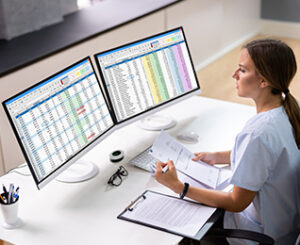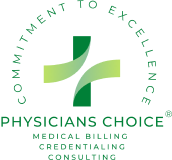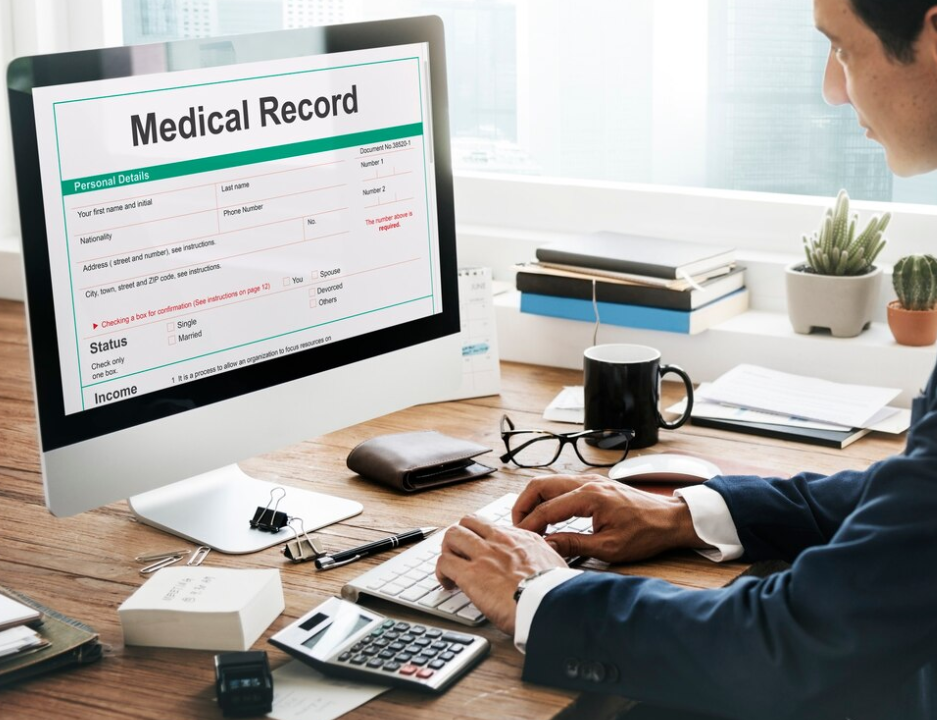What is a Medical Biller and Coder?
Call Us at 727-300-0063
Medical billing and coding is one of America’s most rapidly growing occupations. The U.S. Bureau of Labor Statistics (BLS) medical secretary category includes these workers. This field is projected to grow by 8% in the period 2021-2031, resulting in 53,600 jobs. The demand for healthcare services is expected to increase with an aging population.
Medical billing and coding are a necessary part of every healthcare facility. These tasks can be performed by doctors or office managers in addition to other duties, or they can hire staff to perform them. Clinical workers are often focused on providing patient care. It is up to specialists to handle the administrative work, such as billing and coding. This ensures that healthcare providers receive reimbursement for their services.
Do you find the idea of becoming a billing specialist and coding specialist appealing? Take a look at the requirements to succeed in this fast-growing industry.
What does a Medical Coding and Billing Specialist do?
A medical billing specialist is a liaison for the medical office with insurance companies.
What does it mean?
Billing and coding specialists help healthcare facilities manage insurance claims and invoices. They also assist with payments. A medical coding and bill specialist’s day-to-day tasks include:
- Coding services, diagnoses, and treatments correctly
- Prepare and send invoices or claims to payment
- Correcting rejected claims
- Tracking payments
- Follow up with insurance companies and patients about outstanding bills
These workers are often employed in the same facility as patients, but their primary job is not clinical. Medical billing and coding specialists spend most of their time on the computer reviewing, entering, and updating information.
What is the Difference between Billing and Coding?
Billing and coding are often combined in one job description. They are two distinct job functions with their own responsibilities and tasks.
Most healthcare offices hire the same person for both roles, but larger facilities may split the work into separate positions. It’s therefore important to know the differences between the two jobs.
What is a Medical Coder?
Medical coding involves converting diagnostic and procedure notes into codes that can be used for billing and record keeping. These codes are alphanumeric combinations that are used by the industry to identify and bill services. You will need to know the codes that are used.
- Current Procedure Terminology – These codes identify the specific examinations and procedures performed.
- International Classification of Diseases – These classification codes are used to diagnose medical conditions.
- Healthcare Common Procedural Coding System – This code set includes codes that are not included in the two previous sets. For example, codes for medical supplies or devices and codes for non-physician service.
These codes are used to bill insurance, but the coders must adhere to specific guidelines regarding their use and placement within the billing software.
As soon as a patient schedules an appointment, codes can be entered. The patient’s symptoms and the type of appointment will be coded. Additional codes will be used for symptoms observed by the medical staff, tests, procedures, diagnoses, and recommended treatments.
What is a Medical Biller?
Medical billing specialists create invoices after the coding process is complete and then send claims to the insurance companies (or any other payers) of the patients. Insurance companies approve or reject payment requests based on the codes. The patient will be billed for any remaining balance not covered by the insurance company.
This process can begin as soon as a patient schedules an appointment at the office. Codes are entered and sent to the insurer for approval. The office can then charge the patient the amount of their out-of-pocket expenses.
Even if the coding is done by someone else, a medical biller must understand the codes. This is because the billing specialist will have to review any insurance claims that are denied and update the codes prior to resubmitting them. The medical biller also checks that the codes have been entered correctly prior to submitting the claim.
The remaining balance is invoiced to patients once the insurance billing has been settled. The medical billing specialist is also responsible for this process. Medical billing specialists also track payments and follow up on outstanding payments by insurance companies and patients.
The billing specialist must contact insurance companies to ensure that all paperwork is correct. The billing specialist will need to contact a collection agency if a patient fails to pay an outstanding bill in a certain time frame and refuses to respond to any further requests.
Call Us at 727-300-0063
 Combining Medical Coding and Billing
Combining Medical Coding and Billing
Many medical offices employ billing and coding experts who are trained to fulfill both roles. Some larger facilities may hire separate teams for billing and coding. However, they work closely together to make sure the process is completed correctly. It is important to avoid billing and coding mistakes so that payments can be collected on time.
Other Requirements
Although job titles and descriptions for medical billing specialists and coders may differ, the fundamental requirements are often the same. While familiarity with codes is an important requirement, there are also other areas of knowledge that will increase your chances of getting hired.
- Medical Terminology
A basic understanding of medical terms is necessary to code correctly. It includes terminology related to anatomy and physiology, diagnosis, and procedures. Understanding the most common medical terms will assist in billing and coding.
- Basic Mathematics
Basic arithmetic skills are required to calculate the correct billing amounts. The billing system will automatically fill in the appropriate amounts for insurance claims using the codes you enter. However, it may be necessary to calculate any remaining amounts owed by patients or create payment plans if applicable.
- Computer Skills
Medical billing and coding require an understanding of computer systems, as well as relevant medical software. It is also an advantage to be able to learn new software.
- Communication Skills
Contacting patients to collect payment may be part of the billing process. This aspect of the job requires the ability to communicate professionally and effectively. Communication skills are important when dealing with patients who may be upset or stressed by medical issues and large bills.
- Basic Office Equipment
A medical billing and coding expert will also need to have a basic understanding of other equipment. This includes a calculator with 10 keys, a printer, a copier, and a scanner, as well as a phone system. You have probably used these tools if you’ve ever worked in a workplace.
Medical Coding Certificate
Although certification isn’t required by all employers to become a medical billing specialist, a certification from an industry organization, like the Certified Professional Coder (CPC(r),) credential issued by the AAPC can help you stand out when applying for a position in this field.
CPC Apprentice (CPC A) is awarded to those who have passed the CPC exam, but do not meet the other requirements. CPC Apprentices can achieve full CPC status by submitting proof of either two years of on-the-job experience or 80 contact hours of a coding preparation course and one year of work experience.
Medical Coding and Billing Wages
According to the BLS, in 2021, the median salary of a medical secretary (medical billers and codes) was 37,450 dollars per year. This means that half of medical billing and coding specialists earn more than this amount, and the other half earn less.
The top 10% of earners in this field made over $63,100, which may be a reflection of those who have more experience. The lowest 10% of earners (lowest decile of earners) in this field average $29,040, or $13.96 per hour. This may be due to work experience closer to the entry-level. UMA’s 2021-2022 graduates of its medical billing & coding program reported to UMA a median wage per hour that was approximately at or slightly higher than the BLS’s bottom decile.
You could earn more as you gain experience, particularly if you are promoted to a supervisory or senior-level position.
What Makes Someone a Good Candidate for a Career in Medical Coding and Billing?
Medical billing and coding specialists need to be well organized. A career in medical billing and code might be right for you if you’re a detail-oriented person who can manage your time and handle multiple projects.
Candidates must also be comfortable working in an office environment since the job involves a great deal of time spent in front of computers and with patient files. You should have a solid understanding of medical terms or be willing to learn them. This role requires workers to keep up with the latest changes to procedures and coding.
If you fit this description, training to become a Medical Billing and Coding Specialist may be the right career path for you.


